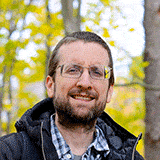The following article was originally written in Russian by Georgii Vermishev and Darya Dmitrieva. It was first published in Деловой Петербург, a newspaper based in St. Petersburg, Russia under the title Удалённые знания: пандемия запустила революцию в системе образования. It has been translated here by Josh Wilson, Assistant Director for SRAS, for the benefit of our students, partners, colleagues, and subscribers.
See also a our side-by-side translation of a survey on how online eduacation has been recieved in Russia.
Open online course platforms could fully change our concepts of distance learning and increase competition within higher education systems.
Often, distance learning is less than loved in higher education. Alarmists predict that it will be of fearfully low quality, and the only people that will study online are the poor (that is, the wide spectrum of Russian citizens who have, so far, relied on taxpayer dollars to fund their attendance of offline programs). From this, we are told, we can see that those that can pay will prefer the “magic” of a teacher’s personal contact.
The pandemic has decidedly sped up the transfer of education to online platforms, however. No choice has been left for the conservative system. But practice shows that hybrid systems are also fully viable.
Open University
One example, developing before our eyes, is the online platform offered by Saint Petersburg State University (SPbGU). Within the first two weeks of the quarantine, the university granted free access to its material, attracting 10,000 students from 45 higher education institutions across Russia. A student can take the distance course and pass the related tests and, afterwards, receive credit at their own university, without further testing.
Asked by DP editors, the leading universities of St. Petersburg, Moscow, and Kazan all confirmed that they were prepared to work with SPbGU’s online platform. Many added that they would accredit other online courses if they fit within the student’s degree program. Incidentally, SPbGU itself adopted this same policy years ago. “We have long been sure of the effectiveness of this method,” their administration told us.
Courses are being digitalized everywhere. Moscow State University (MSU) has developed its own platform, University Without Borders which has, since 2014, offered accredited online courses for its students to those from other institutions.
Similarly, the St. Petersburg National Research University of Information Technologies, Mechanics and Optics (known as “ITMO”), opened free access to its online courses via the collaborative Open Education Portal. “After completing the courses, we document the students’ work for their universities, so that credit can be earned toward their programs,” representatives of ITMO said.
The Uber-ization of Education
Uber changed how taxis work by creating a platform used by thousands of drivers. A similar uber-ization is now happening within Russian education with the National Platform of Open Education becoming a unified platform for all open courses in Russia. It was founded in 2015 by some of Russia’s biggest names in higher education: MSU, SPbGU, ITMO, Higher School of Economics (HSE) and the Moscow Institute of Physics and Technology (MIPT). For now, the course listings are limited, but growing quickly.
Where is all this heading? Competition for students is increasing. Students are no longer “attached” to their departments and their instructors. If something goes wrong (lectures are boring, a conflict arises with the teacher), the student can switch to an online-platform and take an inspiring course there.
MSU administration said that the first to adopt the system were regional institutions that lacked qualified specialists. This allowed them to maintain their educational programs. A course in Mathematical Analysis from MSU is taken online by all first-year students attending Far Eastern Federal University (FEFU) in Vladivostok.
The entire system could eventually change. Small regional institutions will need only to supply mentors (in choosing a program and managing it), organization (for online scientific experiments and to provide students an academic environment to work in), and bureaucracy (issuing diplomas). However, the actual process of education could move to leading providers of online education.
“I personally compare this to theater and cinema,” says the Denis Yanyshev, the Director of the Center for the Development of Electronic Educational Resources at MSU. “Critics said that cinema would replace the theater. But what do we see? 120 years have passed, theater has survived, and for good productions, it is even hard to get tickets. Education, I think, will develop in about the same manner. Traditional offline education will be available for a certain number of people in public and private forms. But there will also be online education, which will strip away all territorial limitations, and, most importantly, will allow regional institutions to better their programs.”
It’s also not just students attending these courses, but professors too. At the Department of English at MGIMO, all employees were told to attend a course by Svetlana Ter–Minasova, the founder of the Department of Foreign Languages and Regional Studies at MSU.
The Department of Build it Yourself
New technologies are obviously opening possibilities for narrow specializations. Now, even the best institutions can’t always find specialists on subjects that might interest a student. In other countries, online education is also allowing the creation of self-assembled educational programs.
“For the last thousand years, the teacher has stood as if ‘on the stage’ and handed information to the student” says Irina Sledeva, CEO of AkademKonsalt, an education agency. “This teaching style demands the pedagogue be an expert on every subject the student learns. Taking into account the speed at which new technology and news in general now appear, this system cannot supply our whole society with highly qualified experts. In the future, the role of the teacher will be more like that of a guide or a trainer. The teacher will show how or what to study, but needn’t be an expert in that field.
Education will take a more personal form: an individual program will be formed with the student, with the possibility of taking courses from different universities in different countries, online or in person. For example, courses might be taken from universities in Austria or the US, one course could come from Harvard, another from Cambridge, and so on.”
It is unlikely that this will happen quickly in Russia, where each institution must follow all federal standards. Any deviation must be cleared by the Ministry, which is very difficult. Therefore, assembling personal education programs can only be done for Continuing Education, one mid-level city institution told DP editors. SPbGU confirmed these difficulties. However, the students themselves will need to be the ones to change this.
“I believe in the power of personal choice, and in the worth of having a personal or group mentor that can help turn a choice into meaningful reality. But, there two important ‘buts.’ The first is that everyone has been long ingrained with a sense that competition, that engine of progress and development, means that one must believe that ‘you must study only at our university, because ours is the best, and attend only my lectures, because they are worse the next door down.’ It will take many years to rid ourselves of this natural barrier. The second ‘but’ is that the student must realize that educational quality depends upon the student’s own actions and not on the university brand or on a hat and a diploma. Simply put, a whole generation will need to change course: from a passive paternalistic ‘I am being given low quality educational services’ to an active ‘I am receiving a quality education with the help of my institution and all the resources of its educational platform.’ Both of these cultural shifts will be difficult and will require substantial time,” says Elena Kazakova, the Director of the Institute of Pedagogy at SPbGU.
Competition from Abroad
Competition for Russia’s students will also come from foreign universities. For a student who knows English well, borders no longer exist. A purely theoretical course can be taken in Helsinki or Boston; it’s only a question of if the institution abroad will accept the student. Russia’s leading institutions, meanwhile, are almost unanimous in their protectionism.
Another issue is that online education, despite its stereotype, is far from cheap; foreign education is quite a luxury. Boston University, for instance, offers a fully accredited online program, but at a cost of more than three thousand dollars per course.
“If you wish to receive a degree from a famous university, then, yes, online education is usually the same price as offline education,” confirms Irina Sledeva. “The only difference is that you don’t have to pay the costs live in another country and the travel costs to get there. Those costs are actually close to 40% of the price of offline education. Of course, this is expensive. It’s not just courses loaded onto a platform, but an online version of the full educational process, where the student attends live lectures, participates in practical seminars, does homework, turns it in to a curator, receives feedback on it, asks questions at lectures, and participates in discussions at seminars. These courses are also updated much more often than has been the standard in the past.”
“Online education is not the education of the poor,” agrees Elena Kazkova. “Believe me, I have experience with expensive online programs, where you wait months or even years for a spot with a particular teacher, because only small groups are accepted, but where every student receives the maximum that the teacher is capable of. Both online and offline education can be good or bad.”
Room for Experimentation
But how can courses like chemistry and physics, where one must run experiments, be conducted well online? This is currently under discussion. In Sweden, for instance, it’s believed they can’t be. While distance courses exist, all exams must be taken in person, as must all lab work.
“There is not a single entirely online bachelor’s degree; at least once a semester, the student must physically visit the educational institution.” Says Ekaterina Zabelinksaya, Reksoft’s Director for International Business Development.
But in America, such programs already exist. “If we are talking chemistry, you can take it at Northeastern, one of America’s leading universities. And you can take distance Continuing Education courses in any subject, including medicine. In universities like Harvard, there are certification programs online, accessible to anyone who want them,” says Irina Sledeva.
Many students find that teamwork is lacking in online work, that existing platforms are incomplete communication tools. But programmers will someday solve these problems.
There are already virtual laboratories such as Chemist for conducting experiments and reactions and Algodoo for 2D-modeling of physics experiments. There are even programs for human anatomy such as Complete Anatomy, Learn Muscles, and Touch Surgery.
“Technology is developing. The same VR can be used to replicate many different physical actions,” says Denis Yanyshev. “That is, even pilots first learn in a simulator, and only then board a plane. These tools are now being actively developed, even if many teachers are not ready for them.”
“We recently had an event where children, forced to stay home because of the virus, carried out an experiment with a university professor acting as their hands,” said Elena Kazakova. “All parties really enjoyed it and found it useful but, I think, if they could have come to the laboratory, they would have been even happier.”


